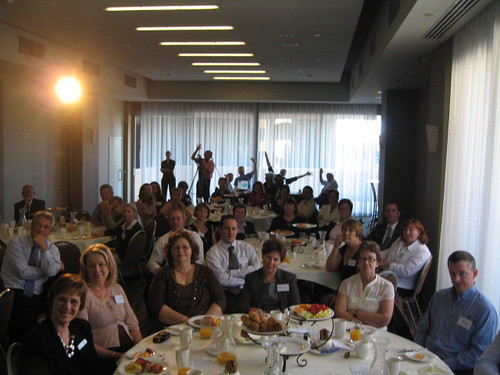
In late March through mid-April I’m heading to New Zealand and Australia to learn, lead and co-lead workshops and generally CONNECT. The Australian batch comprises at least two different things. Here is the first, which I’m doing with the fabulous Matt Moore.
Here is the description and information:
Sydney, Brisbane and Melbourne Workshops
Five years ago, the job title “online community manager” was rare. It was an addition to someone’s existing job, or they simply volunteered. Today, every organisation has or wants an online community (whatever that means). We are working both with bounded communities and broad, diverse networks. We need to be more deliberate in how we integrate community strategies into the heart of our organizations, how they impact our real work, and how they shape our organizations.
Smart organizations are asking:
- What new strategies are emerging for the use of communities and networks?
- What are the emerging practices of community & network management?
- How do we work with both externally and internally facing communities?
Join us as we take a practical and forward looking examination of community & network practices. This in-depth, one-day workshop is aimed at practising online community managers and will tackle issues such as:
Upfront and personal. Social media offers new opportunities to work with customers, citizens and other external stakeholders. With social media employees can collaborate with each other in new ways. How does employee work flow change with greater external stakeholder contact? What does this mean for geographically distributed virtual partnerships? How do we avoid creating more work for ourselves than we can handle?
Multi-membership and it’s evil twin, platform proliferation. The heaven and hell of our context today is that anyone can create a space for a community or network, and technologists are inventing new ways to support these groups every day. We have more opportunities than people have time, attention and capacity to engage in. What does this mean for organizations’ online strategies? For the people stewarding both technology and process? How do we balance the needs of our community members for both variety, usefulness and consistency in this complex environment? And to repeat an important question, how do we avoid creating more work for ourselves than we can handle?
Format
Our format will be deep engagement with no more than 25 participants. We’ll offer some pre-reading prior to the workshop, then dig in with a blend of presentation, demonstration and practice. Our goal is to attract the smartest and most engaged community managers and online thinkers, so significant time will be allowed for participants to learn from each other and co-create solutions. Your output for the day will be a set of strategic questions to take back to your organization for planning your online engagement trajectory, ideas or “sketches” of potential experiments or actions, and a deeper connection with other practitioners.
Bring your mobile or smart device (or borrow one!) — “social sharing” is encouraged. Tweet, blog, Flickr etc. We do ask that everyone be explicit if they say something they do not want made public.
Coffee, lunch and snacks (including chocolate) will be provided. An optional, no-host drinks and social dinner will follow to support continued conversation. We encourage you to join us for the evening’s informal part of the day. We all know that’s where the really interesting conversations emerge!
Who Should Attend
Practicing online community managers, facilitators or similar functions. Technology stewards who provision and support technology for communities or networks. Organizational leaders with responsibility for online interaction goals or processes. While this is not an introduction to online communities or online community management, motivated and interested participants with less experience are welcome if they come in the spirit of a deep dive!
Your Workshop Hosts
Nancy White is an internationally recognised online facilitation expert-practitioner. She has worked with organisations as such as: The United Nations; Australian Flexible Learning Network; Boeing; the Consultative Group on International Agricultural Research; IBM; and the World Bank. She is co-author of Digital Habitats with Etienne Wenger and John D. Smith. Nancy blogs at http://fullcirc.com/wp/ as well as teaches, presents and writes on online facilitation and interaction, social architecture and social media . Nancy confesses to online interaction, learning and chocolate addictions.
Read about Nancy’s 2009 Australia visit.
Matt Moore has worked developing face-to-face and virtual communities with organisations such as IBM, Oracle and the Australian Securities and Investments Commission. He is currently a director of Innotecture and occasionally teaches at University of Technology Sydney.
Costs and Registration
All the workshops will be held in locations that are easily accessible from the CBD of each city. Each workshop costs $500+GST per participant. Please use PayPal to book with Visa/MC or contact us for alternative payment options.
Sydney (Monday 4 April 2011): Book now
Brisbane (Wednesday 6 April 2011): Book now
Melbourne (Monday 11 April 2011): Book now
If you pay and then subsequently cannot attend, we cannot provide you with a refund but an alternative participant from your organisation can be nominated.
